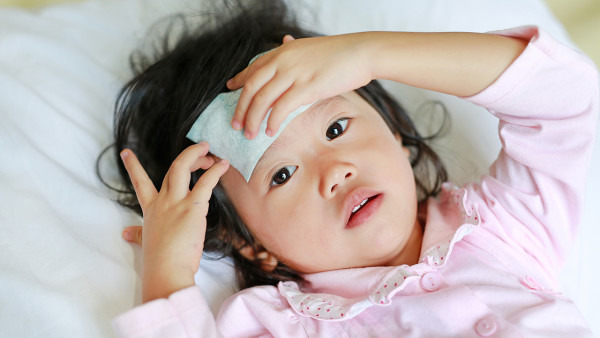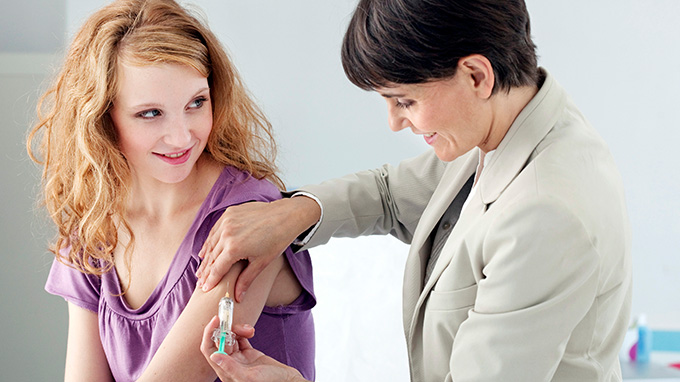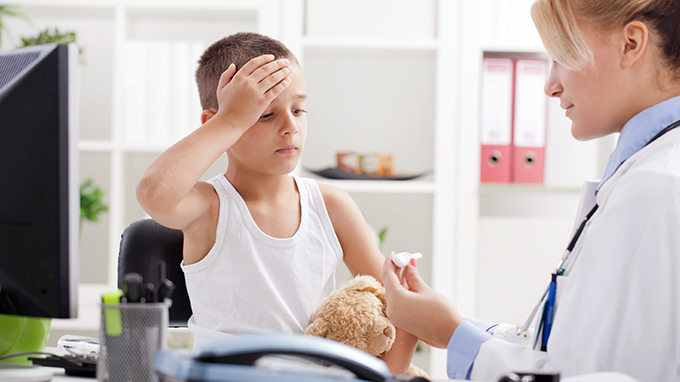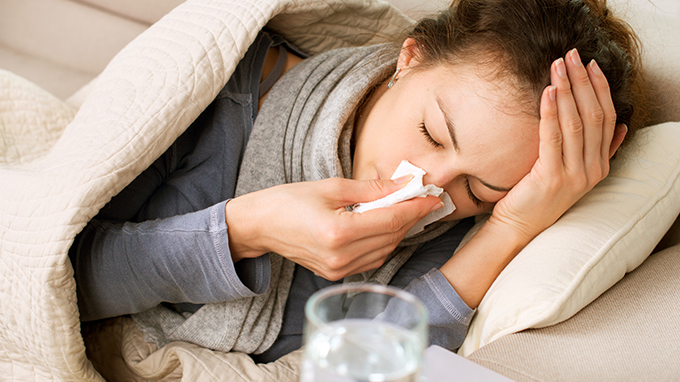What to do if the child has a fever
Fever is not a disease, it is only a symptom, and do not rush to give your child antipyretics unless the temperature is greater than 38.5 degrees.

(一)Understanding fever
Parents need to know that fever is not always a bad thing. Fever is an immune protective response produced by the body''s immune system in order to resist infection. Studies have shown that various immune functions in the body during fever are better than when the body temperature is normal, including faster metabolism, increased antibody synthesis, and increased phagocytic cell activity. These immune functions inhibit the growth and reproduction of pathogens and are beneficial to the recovery of patients. Therefore, premature use of drugs to forcibly cool down not only has the side effects of antipyretics, but also dampens the body''s natural defense capabilities, supports the pathogenic effect of pathogens, prolongs the course of disease, and may cover up the symptoms due to fever. Diagnosis of primary disease is difficult and treatment is delayed. Fever caused by different pathogenic microorganisms has different degrees of heat, heat course, and heat type. Fever can reflect changes in the condition. Fever is also an important reference index for our doctors to diagnose diseases, evaluate efficacy, and estimate prognosis.
(2) What do we do for children when we have a cold or fever?
1.Measure the body temperature.If the temperature does not exceed 38.5, do not need to deal with it first. Give your child more water.
2. Observe the spirit and face. If the child has a fever, the spirit is very good, he can eat and play, and his face is not bad. If the temperature exceeds 38.5 degrees, you can temporarily avoid fever medicines. Choose physical cooling first.
3. If the child does not have the performance of chills and fear of cold, but the temperature is very high. Take care of the front and back and expose the limbs. Use warm water below the body temperature to wipe the head, neck and limbs. Don''t choose alcohol and ice cubes (it will be uncomfortable for children, it will be uncomfortable), and don''t use the so-called "ice ice stickers" (similar to ice cubes, not much value).
4. Give The child is fed glucose water, taking a small amount of frequent doses, supplementing energy, helping diuresis, and the infusion effect is similar.
5. Prepare to open a celerone if the child has no stool on the day or a few days, even in recent days If you don''t eat well, you should use it once to eliminate the food residues accumulated in the body and help to reduce fever.
6. Don''t give children greasy food, mainly light, if it is a baby, don''t be hungry Don''t feed hard, temporarily stop supplementary foods such as eggs that are not easy to digest.
(2) Timing of using antipyretics
Fever is a manifestation of disease, It can increase the nerve excitability of children and cause irritability and crying. Children under 6 years old, especially from 6 months to 3 years old, may have febrile seizures. Children who are extremely weak or have severe pneumonia or cardiovascular disease will be damaged by fever and increased oxygen consumption and cardiac output. When the fever is higher than 42℃, it can cause damage to the nervous system. So generally speaking, it is generally recommended to take 38.5 as the limit in clinical practice. It is higher than this oral antipyretic drug.
But it is also impossible to completely deal with this rigidly. If the child has a history of high fever convulsions, it should be used as soon as possible. The antipyretic medicine is taken orally, and it is recommended when you have a cold. Or the child is younger, although 38 degrees, but the spirit is very poor, you can also use antipyretics early. If the child is older and the spirit is still good, more than 39 degrees, you can temporarily not use antipyretics, observe first, the physical cooling effect is not good before using.
(3) How to use the medicine
1. There is no special medicine for colds. In theory, even if you don’t take medicines, your child can get a cold for about a week However, children are different from adults, and a simple cold may be combined with feelings of general discomfort. It is mainly symptomatic medication. For example, when vomiting, antiemetic drugs are used, digestive drugs are used when indigestion is used, and cough drugs are used when coughing. p>
2. Don’t give your child too much medicine when you have a cold. To combine the most serious cases of your child’s medication, just pick the two or three most important. Don’t do anything. Some parents, after the child has a cold, Some parents hope that all their children''s discomforts will disappear.Combining the consumption of five or six drugs will increase the child''s gastrointestinal discomfort and worsen the condition.
3. Choose the safest antipyretic medicine containing ibuprofen or right Any kind of acetamido atmosphere is enough, don''t use other drugs.
4. Antipyretics are only symptomatic drugs. When a child has a fever, we need to determine the cause of the child''s fever.
(4) When we have a fever, what do we need to observe the child?
When the child has a fever, in addition to measuring the child''s body temperature, we need to do the following:
1 .Look at your body for rashes or other abnormal manifestations
2, to see if your child has diarrhea, what is the appearance of stool? Is it before the fever or after the fever.
3. Look at the child''s urine for abnormal colors.
4. Use a flashlight to see if there are red spots or other abnormalities in the oral mucosa, whether the throat is purulent, whether the tongue is thick, whether the tongue is thick, and there is no smell in the mouth.< /p>
5. Attention should be paid recently: to know whether there is a history of "hand, foot and mouth" in the surrounding population.
(5) When to go to the hospital?
< p> If the parents preliminarily judge that the child''s fever is caused by a cold, the symptoms are not serious, the child can eat and play, you can temporarily not go to the hospital. If something happens, go to the hospital.1. Severe vomiting, unable to eat;
2. When you have a fever, your spirit is very poor and your complexion changes;
3. You have severe diarrhea when you have a fever. Take the stool collection to the hospital;
4. For children younger than three years old, who have a fever of more than 1 day and do not retreat with high fever;
5. When the child has a fever of more than 39.5 degrees, take orally After antipyretic medicine, quickly take the child to the hospital;
6. The child has never been sick since childhood, when he was sick for the first time and had a fever.
Sum up: If you have fever and other uncomfortable symptoms at the same time, go to the hospital. If your child is less than three years old, go to the hospital in time.
What does go to the hospital?
1. First, the blood test routine is required. If the blood routine is normal, do not take the initiative to ask the child to get an injection. If you have diarrhea, you must test the fecal routine.< /p>
2. If the child''s blood routine white blood cells are slightly higher than normal, the child can take the medicine and can temporarily take the medicine to observe.
3. If the child''s white blood cells are very high, with a serious infection, It is still necessary to listen to the doctor''s recommendations for early infusion treatment, control after acute infection (generally no more than three days), and after the fever recedes, you must continue to take medicine, you must adhere to about a week, review blood routine.
4. Personal advice, for older children with a cold and fever (over 7 years old) who have a cold and fever, take medicine at home for a maximum of two days.If the child is still high fever and mentally ill, you should go to the hospital for examination in a timely manner. Children, especially those under 5 years old, are not recommended to observe at home for a long time. Take your children to the hospital for review in a timely manner.
In short, there is a process of disease recovery. In the face of fever, parents must not be too anxious first. Observe the condition carefully and take good care. Communicate with the doctors around you in a timely manner. Fever in children is only a manifestation of various diseases. No fever is not necessarily free of disease. Fever does not mean that the disease has been completely cured. Therefore, a clear diagnosis and treatment of primary disease are the key to restore health.
Related Articles

- How to deal with wounds in life
- In daily life, it is inevitable that skin wounds are caused by trauma due to various reasons. If we know how to properly handle such wounds, we can avoid unnecessary microbial infections,
- 2020-08-03

- If the fever is gone, will the child be ill?
- Recently, one of my articles caused a lot of "repercussions", and also caused a lot of panic to parents. I’m very sorry. At present, I am afraid that the one who hates me most is t
- 2020-08-02

- What to do if you swallow coins
- I went to the outpatient clinic the day before yesterday. I received a child who swallowed coins. Three days ago, after the children swallowed coins while playing with coins, the coins wer
- 2020-08-01

- What is the situation when the child is ill
- This morning, I met a few children who had been treated for a long period of severe abdominal pain, and there were a few children who requested health checkups during the holidays. When I
- 2020-08-01

- What is the safest antipyretic medicine
- The weather has been volatile recently. Children with respiratory infections have increased, and many children with asthma have also relapsed. Parents are very nervous when they meet a chil
- 2020-08-01

- Leg pain is not only an orthopedic disease but also a venous thrombosis of the lower extremities
- Generally speaking, most patients with leg pain are referred to the orthopedics clinic, and the doctor will diagnose the disease through examination. But not all leg pain is orthopedic. Th
- 2020-08-01
